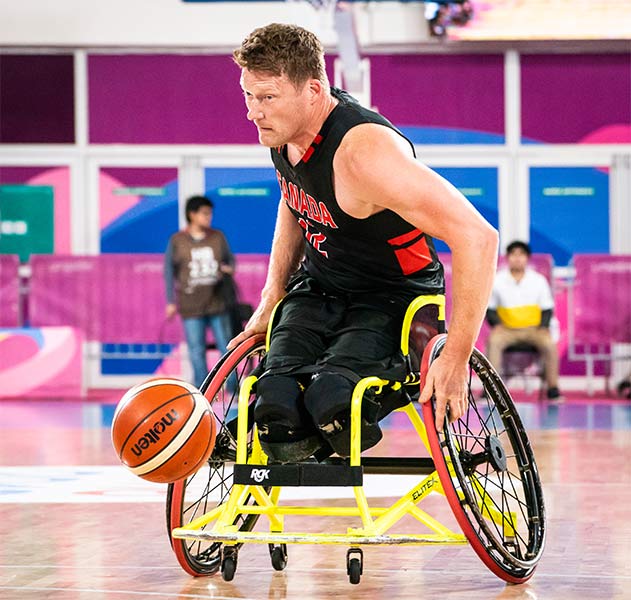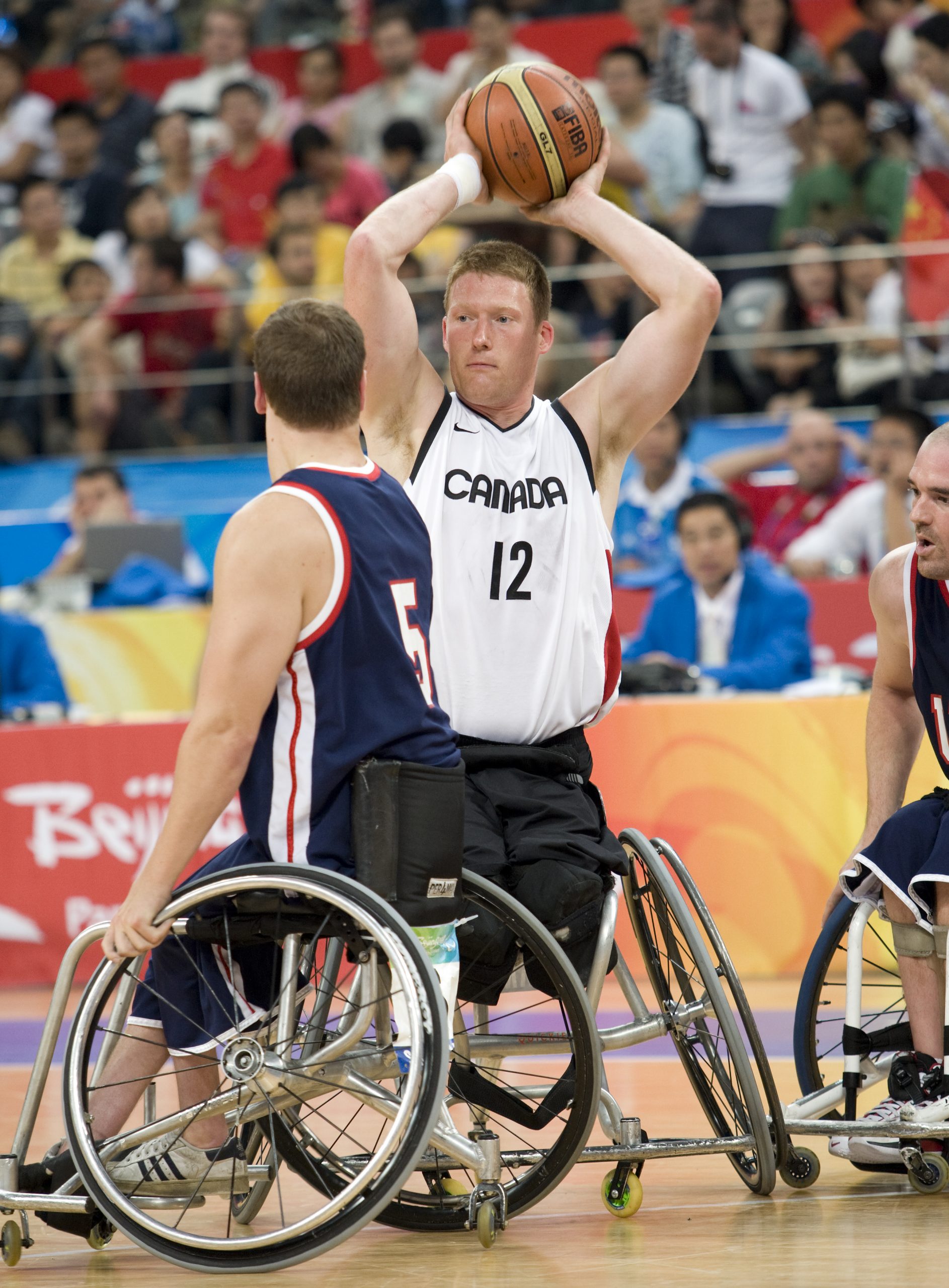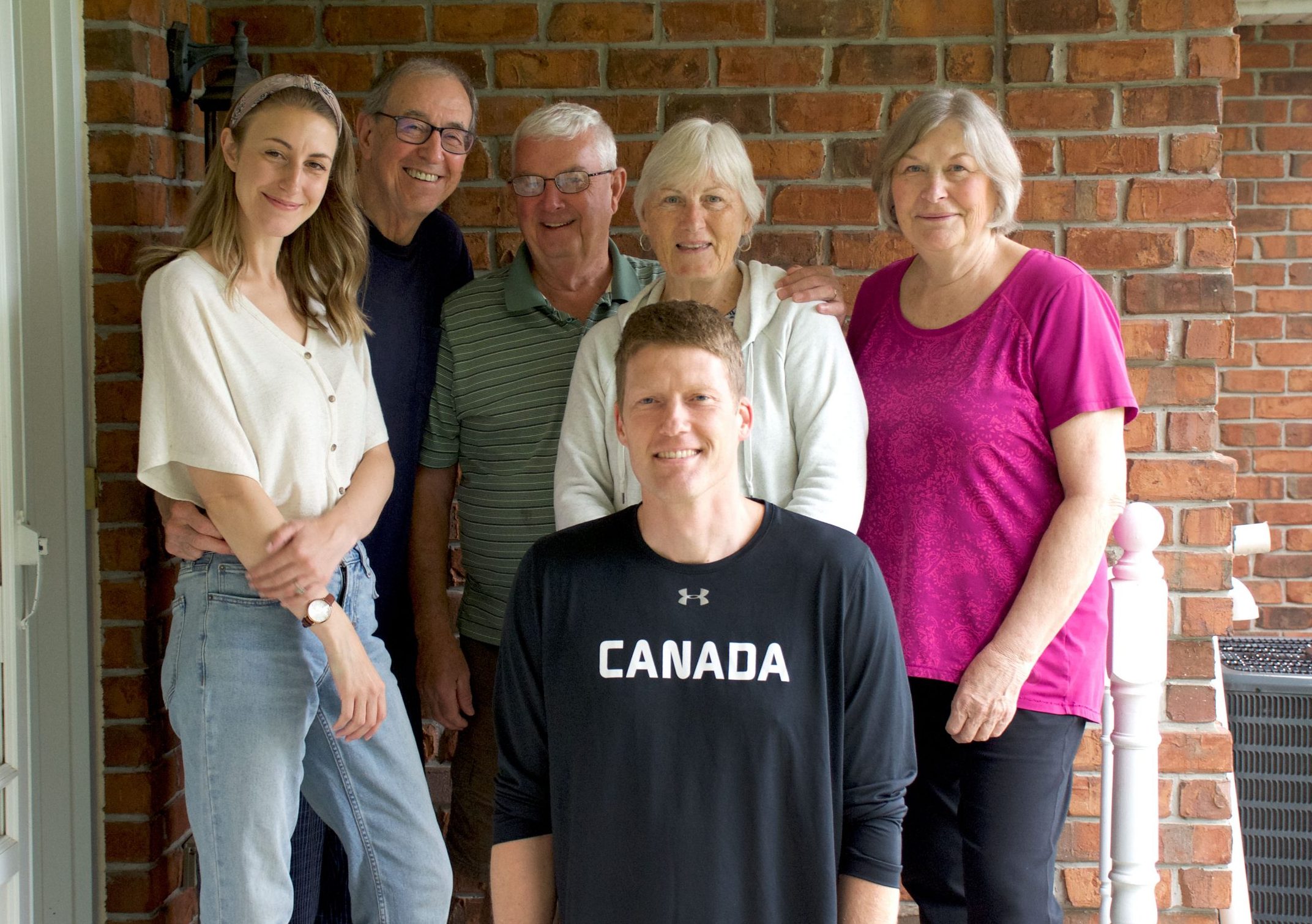FERGUS – A familiar face will be returning to Team Canada for the upcoming Paralympic Games in Tokyo.
Fergus native Patrick Anderson was recently named to Canada’s wheelchair basketball team for the games, which will take place Aug. 24 to Sept. 5.
Anderson will be one of the team’s leaders and is widely considered to be one of the greatest wheelchair basketball players of all time. The Tokyo games will be his fifth time representing Canada in the Paralympics.
He is returning to Paralympic competition for the first time since 2012, after taking time off from the sport. He returned to play for team Canada in 2017 after missing the Rio Games.
Anderson said he feels optimistic about the team’s chances in Tokyo.
“It’s been a long road. Expectations are a little different than the last time I went to the Paralympics,” Anderson told the Advertiser in an interview.
“Back then, we were among a handful of favourites. Nine years later, it’s just a much tighter field.
“We’re in this pack of teams that could kind of break either way, so going into it we know there’s no easy games in our path.”
Anderson said the competition is going to be physically demanding, as the team will play eight games in 10 days against the top countries in the world.
“I really like where we’re at, both physically and from a team culture point of view. For us, we’re peaking at the right time,” he said.
Although the games were delayed by a year due to the pandemic, Anderson said the team, as a whole, has used the time to its advantage.
“A couple of our guys have made really big strides and matured on and off the court in that time and some of the other guys have really taken ownership of the team culture,” Anderson said.
“In some sense, it’s been a hard year for everybody and there’s no getting around that. For us, a bit of a silver lining is that I think we’re in a better place now than we were 12 months ago.”
However, Anderson, 41, said he would have preferred not to be another year older.
“That being said, I’ve personally taken the time to really kind of sharpen my individual skills,” he explained.
“Skill wise, I feel like I’ve never been in a better place. But physically, there’s certain limitations that didn’t exist for me, even four years ago.”
Despite the physical limitations that Anderson has had to accept with his age, the longevity he has achieved in his athletic career is something he takes immense pride in.
Anderson, who first joined the national team in 1997, said he has been inspired by older athletes like Roger Federer, Tom Brady, and LeBron James for their continued dominance into their late 30s and early 40s.
“I don’t know if I’m cut out of the same cloth as some of these hyper-competitive types like a Brady or LeBron,” Anderson said.
“I think I maybe share a sense that it’s still possible to get better in your late 30s and early 40s in a way that people just didn’t think was the case even a few years ago.”
Anderson said he is really enjoying the new phase of his career, even though certain parts of his game have diminished.
“There are also parts of my game I’m rediscovering and even parts of my game that I’m even adding now,” he said.

Patrick Anderson chases a loose ball during the Canada-U.S. gold medal game in wheelchair basketball at the Parapan Am Games in Lima, Peru on Aug. 31, 2019. (Photo by Dave Holland)
One reason Anderson has been able to stay sharp, both physically and mentally, is he’s taken multiple hiatuses from international competition to focus on his family and to pursue other passions, such as music.
“Before 2006, it was basketball that was the hub of my life. Since then, I’ve been to music school and started a family,” Anderson said.
However, Anderson never completely stepped away from the sport.
Along with playing on the national team, Anderson has also played for the New York Rollin’ Knicks of the National Wheelchair Basketball Association (NWBA).
He has also competed professionally in Turkey, Australia and Germany. In 2003, he was the MVP of the Australian National Wheelchair Basketball League.
“The break from the 12-months-a-year sort of grind allowed me to really give it my all when I was committed,” he said.
“I was still sort of maintaining a sort of baseline and enjoying the game.”
Throughout his career, Anderson has always made an effort to try new things and has not shied away from change.
“It’s sort of the story of my career. I just sort of followed wherever it took me. I went to university in the states, I went to Europe, I moved out west, and experimented with different chair sizes,” he said.
“Just trying to forge new paths and try new things. I think that curiosity is part of the reason why I’m still playing now.”
Anderson was not on the Canadian team that competed in Rio in 2016 because at the time he was pursuing a music career.
In 2014, he formed the acoustic pop duo, The Lay Awakes, with his wife, Anna, with whom he has three children.
“It was never our primary job. It was something that we chased for a while, and I’m glad we did. Then we started having kids, and that’s its own thing,” he explained.
“It’s still part of our lives, but our band has sort of [been put on the] backburner since I came back to the team.”
Now just three years away, Anderson said he is “leaving the door open” for another potential return to the team for the 2024 Paralympics in Paris.
“That’s how I chose to approach this, rather than making a decision beforehand,” he said.
“Any given day I can get there. Doing it day-in and day-out, it just gets harder and harder as I get older. I don’t know if my body, my mind and my spirit can keep up with it.
“It really takes a full commitment to train and then compete at that level.”
Canada’s wheelchair basketball team has been a powerhouse for decades. The men’s team has three Paralympic gold medals (Sydney 2000, Athens 2004, London 2012), and one silver (Beijing 2008).

Anderson competing at the 2008 Beijing Paralympic Games. (Bogetti-Smith Photography)
Along with his four Paralympic medals with Canada, Anderson also led Canada to the world title in 2006.
Since first joining the national team in 1997, Anderson said Canada’s wheelchair basketball program has evolved and improved.
“The players were still very skilled back then. It’s just gotten way bigger, faster and more physical. That’s what’s sort of tantalizing about continuing to play,” Anderson said.
“I think my skills still stand out and I still move well, but I have to take practices off, I have to get extra treatment, stuff like that. It wasn’t like that even four years ago.”
For Anderson, it has always been important to remember and give back to the Fergus-Elora community that raised him.
In 2019, he helped longtime friend Andy Speers launch the Patrick Anderson Wheelchair Basketball Program at schools throughout the Upper Grand District School Board.
“It’s really a thank-you for all of the ways I’ve been blessed by this community,” Anderson said.
“People having the chance to play wheelchair basketball has always meant a lot to me because I feel like it’s a real eye opener.
“It’s one thing to hear about it, it’s another thing to watch it, and it’s another thing entirely to play it.”
In 1989, at the age of nine, Anderson was struck by a drunk driver and lost both of his legs below the knee. A year later, he discovered wheelchair basketball.
Anderson described the program as another chapter in the story of the community of Fergus-Elora that responded so supportively to Anderson’s accident.
“Even though I haven’t lived here for a long time, that support really laid the foundation for what I was able to go on and accomplish and experience,” he said.
“What’s particularly vivid is that I just had such a soft landing after my accident.
“One bad thing happened, and there were a thousand lovely responses to it.”
At the Paralympic Games in Tokyo, Canada will compete in Group A, with games against South Korea, Spain, Turkey, Colombia, and Japan.
Anderson and the team will leave on Aug. 12 for a brief training camp before opening the tournament on Aug. 26 versus Spain. Canada will play its final preliminary round game versus Colombia on Aug. 30.
For more information visit paralympic.ca.



